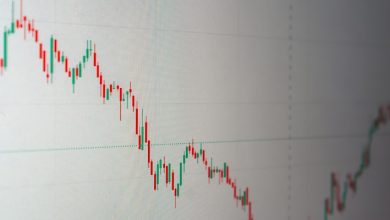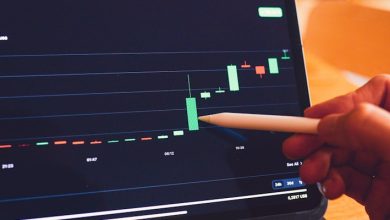The Psychology of Crypto Trading: Fear and Greed

- Understanding the Emotional Rollercoaster of Crypto Trading
- The Impact of Fear on Crypto Trading Decisions
- How Greed Can Lead to Poor Investment Choices
- Psychological Strategies for Overcoming Fear in Crypto Trading
- Balancing Fear and Greed for Successful Crypto Trading
- The Role of Emotional Intelligence in Crypto Trading
Understanding the Emotional Rollercoaster of Crypto Trading
Engaging in crypto trading can be an emotional rollercoaster for many individuals. The volatile nature of the market often leads to intense feelings of fear and greed, which can influence decision-making and ultimately impact trading outcomes.
When prices are soaring, traders may experience feelings of greed, driving them to take risks in pursuit of higher profits. On the other hand, when prices are plummeting, fear can set in, leading traders to panic sell or make irrational decisions out of a desire to avoid losses.
Understanding the emotional dynamics at play in crypto trading is essential for navigating the market successfully. By recognizing and managing feelings of fear and greed, traders can make more rational decisions that are based on sound analysis rather than emotional impulses.
The Impact of Fear on Crypto Trading Decisions
Fear plays a significant role in the decision-making process of crypto traders. When traders experience fear, it can lead to irrational decisions that may result in significant losses. The fear of missing out (FOMO) often drives traders to make impulsive decisions based on the fear of not capitalizing on potential profits. This fear can cloud judgment and lead to poor trading choices.
Moreover, the fear of losing money can also impact trading decisions. When traders are afraid of losing their investment, they may panic sell during market downturns, leading to unnecessary losses. This fear-driven selling can create a domino effect, causing prices to plummet even further.
Additionally, fear can cause traders to second-guess their strategies and constantly monitor the market for any signs of potential losses. This fear of uncertainty can lead to overtrading and emotional decision-making, which can ultimately harm profitability. It is essential for traders to manage their fears and emotions effectively to make rational trading decisions.
How Greed Can Lead to Poor Investment Choices
One of the most common pitfalls in crypto trading is the influence of greed on investment decisions. When traders are driven by greed, they often make poor choices that can lead to significant losses. Greed can cause investors to chase quick profits without considering the long-term consequences of their actions.
Investors who are motivated by greed may ignore warning signs and red flags in their pursuit of higher returns. They may take unnecessary risks or invest in volatile assets without conducting thorough research. This can result in impulsive decision-making and a lack of discipline in their trading strategies.
Furthermore, greed can cloud judgment and lead to irrational behavior. Traders may become overconfident in their abilities to predict market movements, leading them to make reckless trades based on emotions rather than logic. This can ultimately result in financial ruin if not kept in check.
It is essential for traders to be aware of the dangers of greed and to practice self-control when making investment decisions. By staying disciplined and sticking to a well-thought-out trading plan, investors can avoid falling victim to the negative effects of greed and improve their chances of success in the volatile world of cryptocurrency trading.
Psychological Strategies for Overcoming Fear in Crypto Trading
When it comes to overcoming fear in crypto trading, there are several psychological strategies that can help traders manage their emotions and make more rational decisions. Here are some effective techniques to combat fear and improve trading performance:
- Practice mindfulness: Being present in the moment and focusing on the facts can help reduce anxiety and fear when trading cryptocurrencies. Mindfulness techniques such as deep breathing and meditation can be valuable tools for staying calm under pressure.
- Set realistic goals: Establishing clear and achievable trading goals can help traders stay focused and avoid being overwhelmed by fear. By breaking down larger objectives into smaller, manageable tasks, traders can build confidence and reduce anxiety.
- Develop a trading plan: Having a well-defined trading strategy can provide a sense of structure and security, which can help alleviate fear and uncertainty. By outlining specific entry and exit points, risk management rules, and profit targets, traders can feel more in control of their trades.
- Monitor your emotions: Keeping track of your emotional state while trading can help you identify patterns of fear and anxiety. By recognizing when you are feeling overwhelmed, you can take steps to calm yourself down and make more rational decisions.
- Seek support: Talking to other traders or a mental health professional about your fears and anxieties can provide valuable insights and support. Sharing your experiences with others can help you gain perspective and develop coping strategies for managing fear in crypto trading.
Balancing Fear and Greed for Successful Crypto Trading
When it comes to successful crypto trading, finding the right balance between fear and greed is essential. These two emotions can significantly impact your decision-making process and ultimately determine your trading outcomes. To navigate this delicate balance, it’s crucial to understand how fear and greed manifest in the world of cryptocurrency.
Fear can be a powerful force when trading crypto. It can cause you to hesitate when making crucial decisions, leading to missed opportunities. On the other hand, greed can drive you to take on excessive risks in the hopes of reaping higher rewards. Finding the equilibrium between these two emotions is key to maintaining a level-headed approach to trading.
- One way to balance fear and greed is by setting clear goals and sticking to a well-defined trading strategy. This can help you avoid making impulsive decisions based on emotions.
- Another effective strategy is to diversify your portfolio to spread out risk. By investing in a variety of cryptocurrencies, you can minimize the impact of market fluctuations on your overall investment.
- It’s also essential to stay informed about market trends and developments to make informed decisions. Keeping up-to-date with news and analysis can help you navigate the volatile world of crypto trading more effectively.
Ultimately, finding the right balance between fear and greed is a continuous process that requires self-awareness and discipline. By understanding how these emotions can influence your trading behavior, you can develop a more rational and strategic approach to crypto trading.
The Role of Emotional Intelligence in Crypto Trading
Emotional intelligence plays a crucial role in the world of cryptocurrency trading. The ability to manage emotions such as fear and greed can have a significant impact on an individual’s success in the volatile market. Traders with high emotional intelligence are better equipped to make rational decisions, even under pressure.
When it comes to crypto trading, fear and greed are two emotions that can cloud judgment and lead to poor decision-making. Fear can cause traders to panic sell during a market downturn, while greed can push them to hold onto an asset for too long, hoping for even greater profits. By developing emotional intelligence, traders can better control these impulses and make more strategic trades.
Being able to recognize and regulate emotions is key to maintaining a level head in the fast-paced world of cryptocurrency trading. Traders who are able to stay calm and focused are more likely to make informed decisions based on market analysis rather than emotional reactions. This can ultimately lead to more consistent profits and long-term success in the crypto market.



